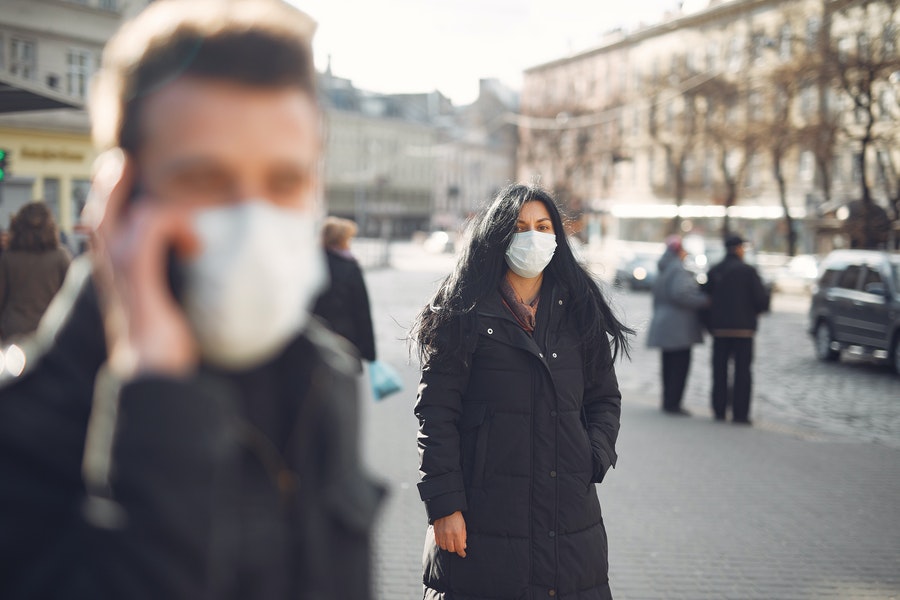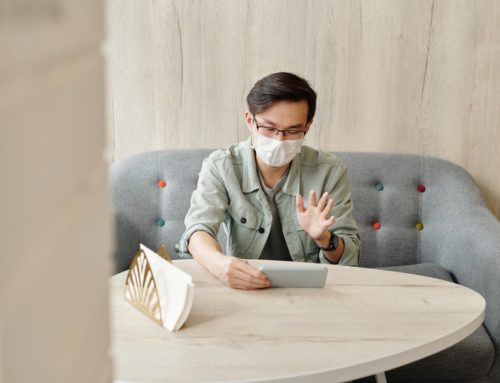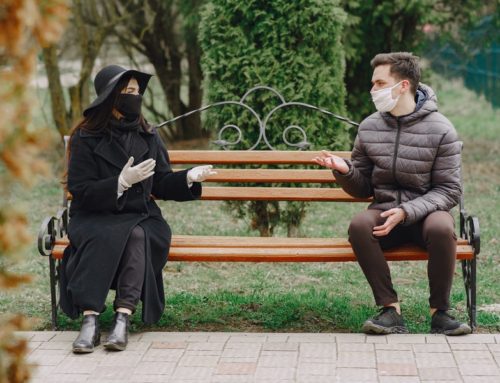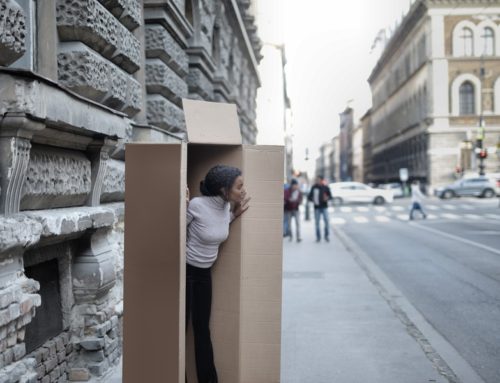We have made it through the COVID-19 pandemic in 2020.[1] We all know people who’ve had the virus and many of us are grieving the loss of loved ones due to COVID-19. The disturbances to our routines and our concepts of normalcy continue unabated and it seems like the ground shakes under our feet from minute to minute from one distressing change after another.
Although we cannot control events on a large scale, we can change how we react to them. Taking action, even on the small scale, can help us feel more in control and deliver real benefits to our lives. Consider the following ways to reduce anxiety during COVID-19.
- Pay attention to CDC guidelines, but don’t exceed them. You don’t have to sterilize your mail or grocery items. You don’t need to wash your hands so often they crack and bleed. Although it’s easy to think that doing more and going above guidelines might alleviate worry, studies show that ritualizing and fetishizing behaviors increases anxiety.[2]
- Get moving for effective and fast stress relief. You don’t have to sprint around the block, and there’s no need to train for a marathon. Any exercise that puts you in sustained motion prompts the brain to release serotonin and dopamine, which are neurochemicals vital to an even, balanced mood. Dopamine is also required for the control and suppression of pain.
- Learn about meditative practices. Meditation is a deeply helpful practice that reduces stress, lowers anxiety and helps clear the mind.[3] Yoga is another stress reducer that can be practiced at home without expensive equipment.
- Lower your exposure to news and social media if you’re overdoing it. Chances are if your anxiety is sky-high, you’re spending too much time doomscrolling. Doomscrolling is the recently-coined term for repetitive scrolling through one’s news feeds, only paying attention to the worst news.
- Practice compassion and kindness (to yourself, too). This is a difficult, challenging time to be living in. We’re all going through this kind of national trauma for the first time. Everyone is feeling their way through uncertainty. That said, be as compassionate as possible, especially to yourself.
- Seek professional help. You don’t have to wait until you’ve worried yourself to a frazzle. You don’t need to have a critical mental illness to seek the help of a professional therapist, either. Professional therapy can help you learn individualized coping skills, and stress reduction techniques. Therapy also gives you a safe space to talk about your individual needs, thoughts, and feelings.
If talking things through with a professional is beginning to sound good, Damaris Aragon, ARNP, BC provides a full spectrum of mental health care to people in Spokane, Washington, and surrounding areas. She focuses on providing personalized, compassionate care that adheres to current evidence-based standards.
Reach out to Damaris through her contact page or calling 509-342-6592.
[1] https://covid.cdc.gov/covid-data-tracker/#cases_casesper100klast7days
[2] https://doi.org/10.1016/j.cub.2015.05.049
[3] https://journals.sagepub.com/doi/abs/10.1177/070674370705200409






